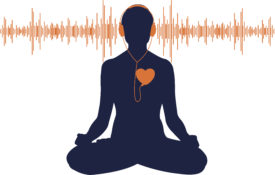
One reason happiness can seem so elusive is that our current feelings can interfere with memories of our past well-being. Analysis of four longitudinal surveys.

New research adds to the growing body of evidence that happiness not only feels good, it is good for your physical health. [July 22, 2020]

Having a happy spouse can lead to a longer marriage, and now study results show that it’s associated with a longer life, too.

Humans may communicate positive emotions like happiness through the smell of our sweat.

Consumption habits may play a stronger role than income itself in how people feel about their lives, a study suggests.

What is the best way to spend money to increase your happiness? A series of studies suggests that it may depend, in part, on how wealthy you are.

Longitudinal research reveals that self-reported feelings of well-being tend to increase with age, but that a person’s overall level of well-being depends on when he or she was born.

Positive emotions are often seen as critical aspects of healthy living, but new research suggests that the link between emotion and health outcomes may vary by cultural context.

A psychological study suggests that happy people may have an easier time in justifying their own immoral behavior.

Encouraging young people at high-risk of delinquency to see happiness rather than anger in facial expressions appears to dampen their levels of anger and aggression

New psychological findings show why a country’s economic growth doesn’t always translate into greater happiness for its citizens.

Data from a study of German adults showed that people who adopted socially-focused strategies reported increased life satisfaction one year later.

Using reappraisal to regulate our emotions in situations we actually have control over may be associated with lower well-being, researchers find.

When thanking someone, individuals underestimate the level of happiness their expression of gratitude brings to the recipient, a series of experiments shows.

The spread of mindfulness and meditation as wellness tools outpaces scientific evidence, a team of researchers concludes.

Money could buy happiness if your purchases fit your personality, a study shows.

A boost to income can increase happiness to a certain degree, but research suggests how you spend your money may be equally important as the amount you have.
